Blogging & Musing...
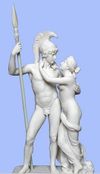
Lately, I've been struck by something strange: my growing preference for male writers. I'm a little tired of Venus, which is hard for me to admit...what with being a girl.
But after reading a lot of female authors recently, I find myself bored with their focus on the intimate—the bird's eye view into relationships and family—waiting for the shoe to drop, the relationships to explode, tragedy to strike, and a general mess to be made of everything. I'm always worried how it all gets cleaned up.
I'm thinking of authors like Sue Miller, Jodi Picoult, Anne Tyler, Alice Hoffman, Jennifer Weiner, Marilynne Robinson. These are incredibly talented writers; they're wonderful. It's just that....
Men seem to write on a larger scale; even the personal is painted on a broader canvas, sometimes of near-epic proportions. I'm thinking of David Mitchell's The Thousand Autumns of Jacob de Zoet ... Jeffrey Eugenidies Middlesex...David Wroblewski's Edgar Sawtelle......Phlip Roth's The Human Stain or American Pastoral.
After finishing one of those novels, I feel as if I've been part of something grand, something vast and far beyond my day-to-day perception of life. There's a thrill in that.
But now, in the very act of putting pen to paper (or finger to key), I'm starting think of all the exceptions: Hilary Mantel's Wolf Hall is of an era, and Louise Erdrich's Plague of Doves is mythic. Both Richard Russo and Chris Bohjalian write with penetrating intimacy. So...well, there you go. I've proven nothing.
Still, the issue recalls an earlier post in which I asked the same question: Do men and women write differently? The question at the time was spurred by Liesl Schillinger, who wrote in a New York Times review of Domestic Disturbances:
While the voice and mood of the novel are masculine, clinical and objective . . . the book’s descriptions of colors, smells, clothing and bodies show feminine perception.
So...if Liesl can say something like that...maybe I'm not nuts.
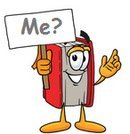 Ever get that “ah-ha!” feeling when reading? You come across a passage that practically shouts, “Hey, pal. Pay attention—this is YOU we're talkin' about.” It’s eerie, sometimes unnerving.
Ever get that “ah-ha!” feeling when reading? You come across a passage that practically shouts, “Hey, pal. Pay attention—this is YOU we're talkin' about.” It’s eerie, sometimes unnerving.
One of the narrators of Nicole Krauss’s Great House describes herself in a lengthy passage…and I felt an itch of recognition, a not very pleasant itch either…so I won’t quote it here.
But I love that books can do that…make us see ourselves…recall feelings and experiences…and put them into words! It’s uncanny.
Question for Book Clubs
Was there a particular character—or moment—in the book you’re reading now that gave you a sense of self-recognition? What about in other books? If you’ve come across those passages, can you recall how they made you feel?
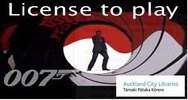 Gotta toot my own horn. When I started my LitLovers website, I’d no idea how it might be used . . . or that readers around the globe would tune in.
Gotta toot my own horn. When I started my LitLovers website, I’d no idea how it might be used . . . or that readers around the globe would tune in.
A library site in Auckland, New Zealand, uses LitLovers as part of their web 2.0 training exercise—and what a cool site to be listed on. Take a look.
Lots of libraries have training blogs to teach staff how to maneuvre the new world wide web (web 2.0)—which refers to the new level of interactivity on the Net—sites like Del.ic.ious, StumbleUpon, GoodReads, FaceBook, Wikipedia, LibraryThing, and personal blogs.
LitLovers has been used on a number of library training sites in the US, but the New Zealand one is a particularly gratifying! Spend some time on it yourself—we can all learn more about this new web environment.
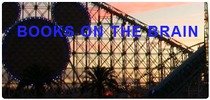 Books on the Brain.com Check out my guest column on one of the best book blogs on the Net. I talk about the fact that book clubs are saving the world for democracy!
Books on the Brain.com Check out my guest column on one of the best book blogs on the Net. I talk about the fact that book clubs are saving the world for democracy!
Had you any idea how important you were?
 A NY Times article (2/25/09) pondered whether a Liberal Arts education will be around much longer. Recent trends suggest maybe not.
A NY Times article (2/25/09) pondered whether a Liberal Arts education will be around much longer. Recent trends suggest maybe not.
When I taught English, a number of students resented the time my class took from their studies in science & technology or business & finance. Those are the disciplines that would pay them good money . . . and pay off their tuition loans. But English? What good is it?
You can talk till you’re blue in the face—and I did—about the power of language, about the importance of clear thinking and coherent, persuasive writing—the things liberal arts teach us.
After all, it was Bethany McClean, a former English major who first cracked the Enron scandal—because, as she said, she knew the right questions to ask. There are lots of stories like that.
And I talked about how the humanities explore the important questions of life—
How does one lead a good life in a not-so-good world?
What does it mean to be human?
But, honestly? $20,000 a year is a lot money to spend on trying to figure out what your humanity’s about.
So maybe the pursuit of liberal arts is a luxury we can no longer afford. That’s what more than a few in the ivory towers are suggesting.
Questions for Book Clubs
- If college humanities courses fall off a cliff . . . will book clubs pick up the slack? After all, to read and discuss books is to engage the very questions posed by humanities.
- But then who said book clubs are supposed to solve society’s problems? Isn’t our roll simply to enjoy reading and sharing ideas, large or small?
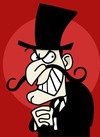 Do we have to love a book's main character? What happens if we despise the hero/heroine?
Do we have to love a book's main character? What happens if we despise the hero/heroine?
I just read a blurb for Zoe Heller's new book, Believers. Critics are praising it up and down, though some find the characters unlikable ... can’t relate to them ... even find them NASTY!
So, back to my question. Can we enjoy a book without liking its characters? Love the book, hate her—as in Serena, another recent book with a heroine no one can stand.
How about Emma—Jane Austen’s masterpiece? Even Austen knew her dear readers would have trouble liking her control-freak-of-a-heroine. Then there's Lolita, featuring one of the most dastardly heroes in all of literature? Humbert Humbert is surely enduring if not endearing—and the book is considered one of the great works of the 20th century.
Still ... it’s hard to get into a book when characters are unlikable. Am I alone? Probably not.
Questions for Book Clubs
- Can a bad character ruin a good book?
- How do you begin most of your book discussions—by talking about the characters? And if you don’t like the main character...where does the discussion go? Does it peter out?
- If a character is unlikable, is it intentional on the part of the author? To what end?
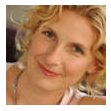 So pretty. So Blonde. So articulate. Did I mention thin? On top of that, she writes Eat, Pray, Love, a terrific besteller. (Me? I’d have called it Eat, Eat, Eat…but then it’s her book, and as I said, she’s thin.)
So pretty. So Blonde. So articulate. Did I mention thin? On top of that, she writes Eat, Pray, Love, a terrific besteller. (Me? I’d have called it Eat, Eat, Eat…but then it’s her book, and as I said, she’s thin.)
I ran across her on a video interview on the "Barnes & Noble Studio" page, Meet the Authors. It’s fun place to visit—good interviews with interesting authors.
Also check out Borders Book Club, another set of videos featuring an Ann Arbor, Michigan, book club that invites top authors in to speak.
Book Clubs can get some good ideas of books to read, authors to check out, discussion questions to ask. The videos are interesting enough to play in your meetings.
Site by BOOM
![]()
LitLovers © 2024
